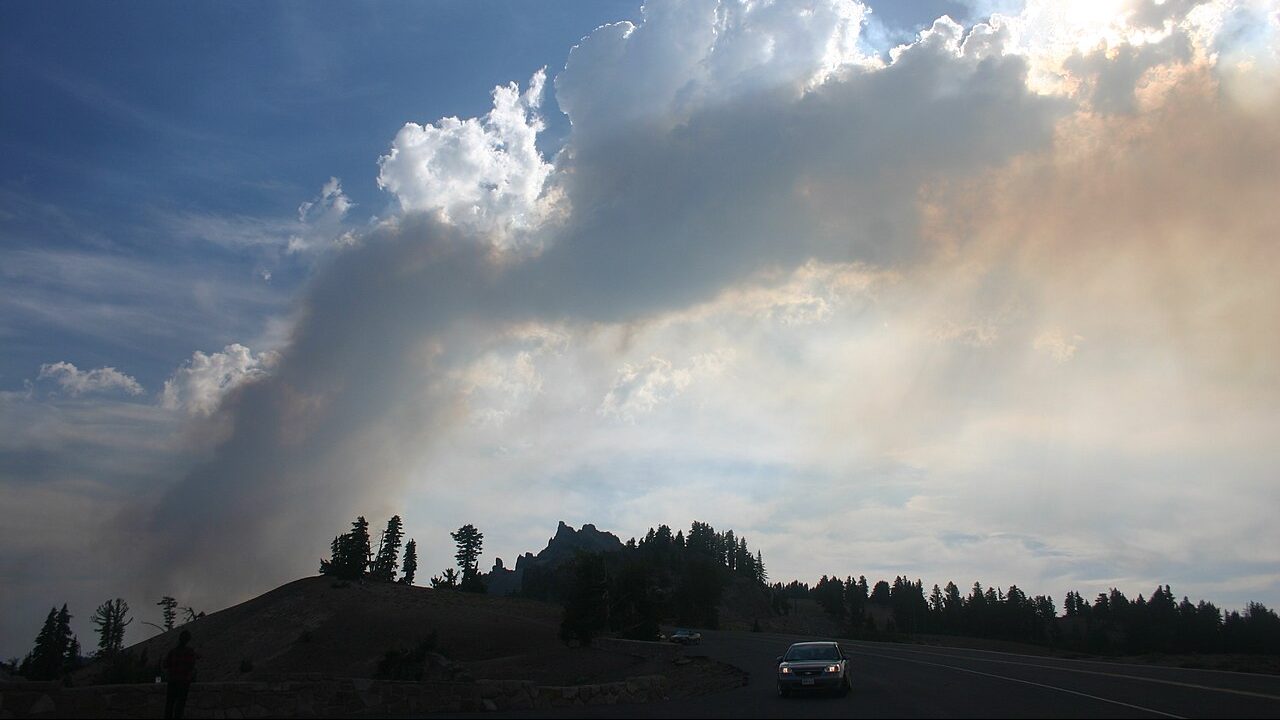Health, environmental groups join lawsuit to overturn EPA ozone designation in Detroit
Sarah Cwiek January 19, 2024The attainment finding allows the state to loosen restrictions on, among other things, permitting new polluting entities in the area. “

The EPA allowed Michigan to disregard two days of data showing elevated ozone at one Detroit location, which the agency blamed on Canadian wildfires.
Health and environmental groups are joining a Sierra Club lawsuit claiming the U.S. Environmental Protection Agency wrongly found that southeast Michigan now meets federal ozone standards.
The seven-county region had previously been considered in “non-attainment” (the government’s parlance for regions that don’t meet standards) for ground-level ozone, also known as smog. Ozone is not emitted directly, but is the result of nitrogen oxides (NOx) and volatile organic compounds (VOCs) reacting in the presence of sunlight — the cause of the “ozone action days” that can occur in the summer months.
But that non-attainment designation changed last year, when the EPA signed off on a state finding that the area now meets federal standards. The Sierra Club is spearheading the lawsuit challenging the designation, which is being heard in the U.S. Sixth Circuit Court of Appeals.
Sierra Club attorney Elena Saxonhouse said the government made some “serious factual and legal errors” in its decision-making process. She said the EPA allowed Michigan to disregard two days of data showing elevated ozone at one Detroit location, which the agency blamed on Canadian wildfires.
And Saxonhouse said much of the data was gathered during the height of the COVID pandemic. “In general, pollution levels were down during those years,” she said. “And so it’s not representative necessarily of what’s going to be the case going forward.”
Saxonhouse said the attainment finding allows the state to loosen restrictions on, among other things, permitting new polluting entities in the area. “This is an area of the state that suffers from cumulative impacts from multiple pollutants,” she said. “And we really wanted [the state] and EPA to enact the strongest protections possible for these disproportionately impacted communities.”
Chief among those disproportionately impacted communities is Detroit, said Kindra Weid, a Michigan nurse who heads the group MI Air MI Health. Weid noted that ozone is known to exacerbate and even cause chronic lung conditions, and said her group got involved by filing an amicus brief to protect the area’s most vulnerable residents.
“Detroit residents are particularly susceptible to the impacts of ozone because they have higher rates of asthma in comparison to the rest of the state,” Weid said.
The EPA is expected to respond to the groups’ arguments this spring, after which the court will hear oral arguments. A decision is expected sometime later this year.
The state and EPA have defended their ozone attainment decision, saying it’s based on “sound science.”
Trusted, accurate, up-to-date.
WDET strives to make our journalism accessible to everyone. As a public media institution, we maintain our journalistic integrity through independent support from readers like you. If you value WDET as your source of news, music and conversation, please make a gift today.

